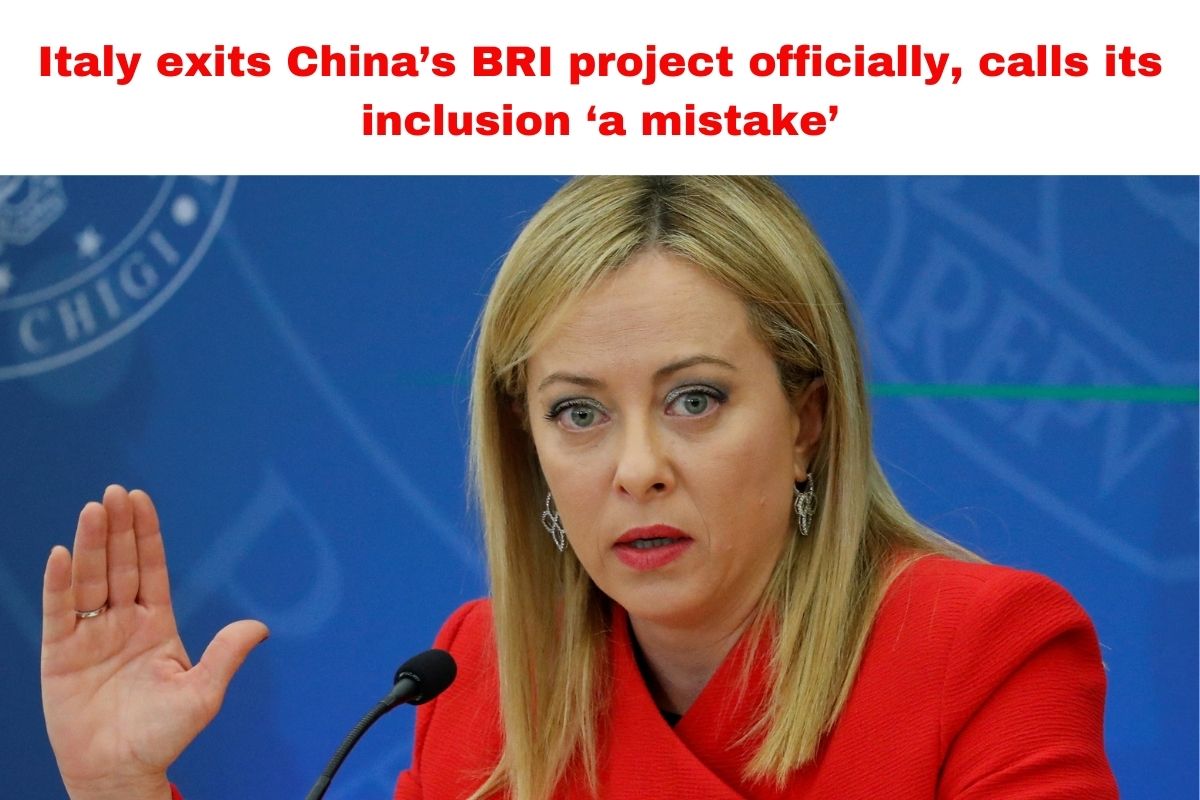NEW DELHI: Italy has exited China’s extensive Belt and Road infrastructure initiative, marking its withdrawal after four years of being the only G7 nation to join the initiative.
Italian newspaper Corriere della Sera reported that the Giorgia Meloni-led government had intimated their decision to the Chinese government on Monday.
While no official statements have been released by either party, a source from the Italian government confirmed to AFP that they had officially withdrawn from the initiative.
Meloni has consistently opposed Italy’s involvement in an initiative perceived by many as an effort by the Xi Jinping government to gain political influence, with limited benefits for Rome.
The agreement was set to renew automatically in March 2024 unless Italy chose to opt out by the end of 2023. However, Meloni and her right-wing government were cautious about provoking the Chinese government, fearing retaliation against Italian companies.
During the G20 summit held in Delhi in September, she reassured reporters that if Rome were to withdraw from the project, it “would not jeopardise relations with China.”
Also Read: Government action is needed to save people from cleaning sewers manually
Upon assuming office in October 2022, Meloni candidly acknowledged that Italy’s engagement in the BRI was a “mistake.”
The memorandum of understanding with China encompassed expansive commitments for collaboration spanning logistics, infrastructure, finance, and environment.
Adding to the chorus of concerns, Italian Foreign Minister Antonio Tajani expressed in September that the membership in the BRI “has not produced the results we were hoping for.” This sentiment further underscored the challenges and unfulfilled expectations associated with Italy’s participation in the initiative.
It’s noteworthy that Germany and France, two significant European economies, opted against joining the BRI. Despite this, both nations managed to secure substantial trade and investment deals, emphasising alternative strategies for engaging with China.
This divergence in approach among European nations reflects the nuanced considerations and diverse paths taken in navigating diplomatic and economic relations with China.
The complexity of international engagements underscores the importance of careful assessment and strategic decision-making for nations seeking to balance cooperation to safeguard their interests on the global stage.

